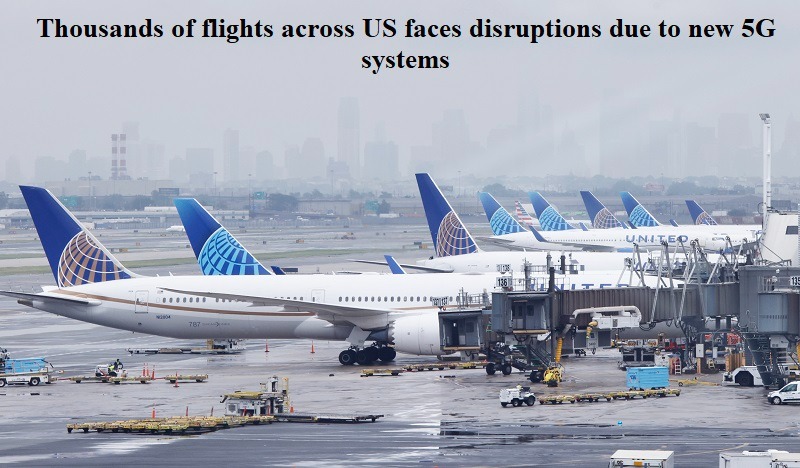
From this weekend onwards, numerous flights throughout the US were predicted to experience disruptions due to the implementation of new 5G systems near major airports. Concerns arose among aviation groups regarding potential flight disruptions and even potential disasters due to 5G signal interference with aircraft systems.
However, it was revealed on July 1 that most major US airlines had made the necessary adjustments to adapt to 5G. American, Southwest, Alaska, Frontier, and United Airlines stated that all their aircraft are equipped with radio altimeters that are safeguarded against 5G interference.
The Federal Aviation Administration (FAA) had previously cautioned that potential interference could impact sensitive airplane instruments, such as altimeters, and significantly impede operations in low-visibility conditions.
Last week, Transportation Secretary Pete Buttigieg also issued a warning about possible turbulence ahead. He noted that at least 20% of the country’s aircraft fleet lacked the equipment to handle signal interference.
“While more than 80% of the US fleet has been retrofitted, a significant number of planes, including many operated by foreign airlines, have not been upgraded,” Buttigieg stated. He further explained to The Washington Journal that there was a real risk of delays or cancellations, making this one of the biggest foreseeable issues affecting performance during the summer.
Airlines had previously informed the government about difficulties in obtaining the necessary equipment to retrofit their planes due to supply chain constraints.
Delta Air Lines reported that around 190 out of its fleet of over 900 planes had not received the required update and could face restrictions in adverse weather conditions. However, specific disruptions caused by 5G were not mentioned. To mitigate any potential issues, the company stated that it was carefully rerouting these planes to limit cancellations in conditions with low visibility due to fog or clouds.
Reports indicated that Delta’s A220 fleet, most A319s, A320s, and some A321s were yet to be retrofitted with modern technology.
Under pressure from the Biden administration, wireless companies agreed to delay the full rollout of their new networks around major airports until July 1.
It is noteworthy that telecom operations like Verizon and AT&T use a portion of the radio spectrum called C-Band, which is close to the frequencies used by radio altimeters. However, experts and FAA officials argue that the close proximity of these frequencies can cause interference problems during flights.
The Federal Communications Commission (FCC), which granted spectrum rights to telecom companies, has long been at odds with the FAA over this issue. Following heated debates last year, the rollout was postponed until July 1, 2023.
The International Air Transport Association (IATA), a trade group representing over 100 airlines operating in and out of the US, stated that the decision not to extend the deadline increases the likelihood of disruptions during the peak summer travel season.
“Supply chain issues make it unlikely that all aircraft can be upgraded by the July 1 deadline, threatening operational disruptions during the peak northern summer travel season,” the organization stated, adding that the estimated cost to upgrade planes is $638 million.

Post Your Comments